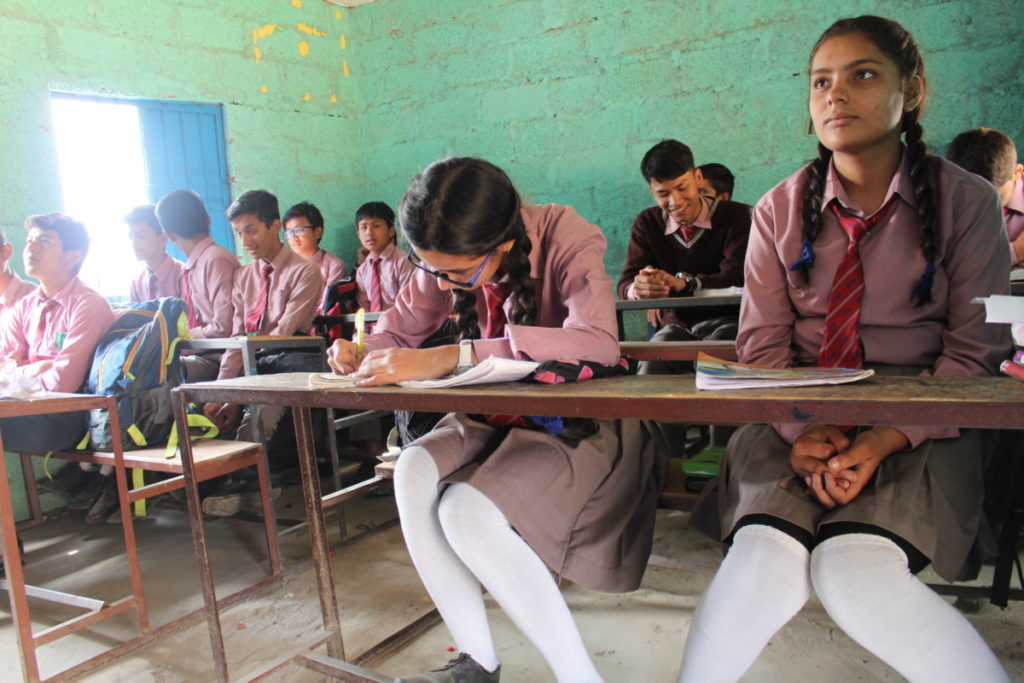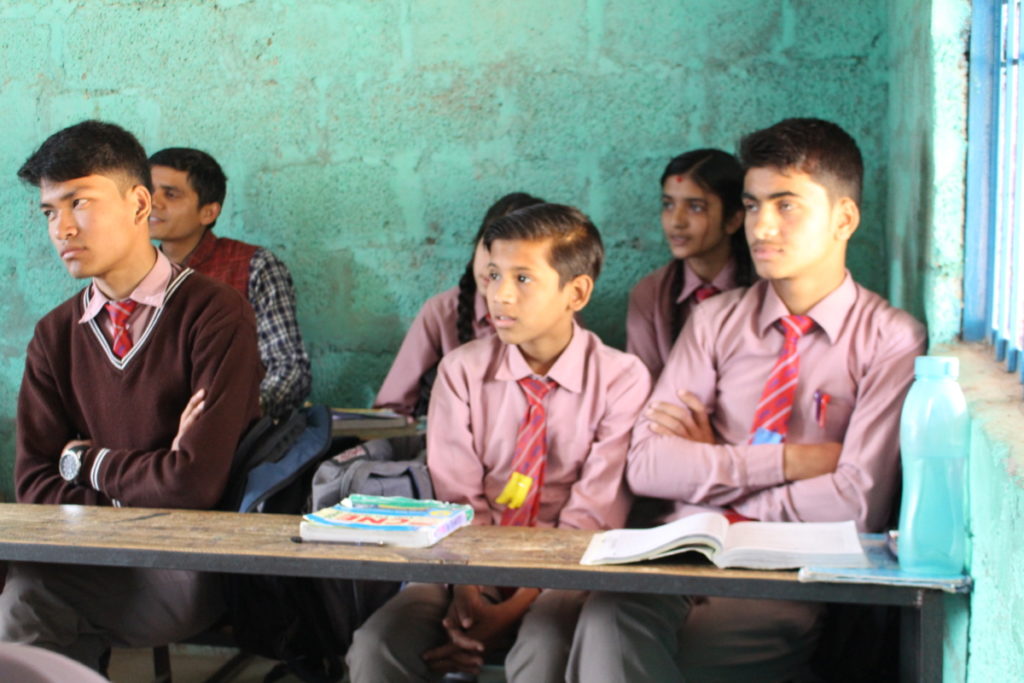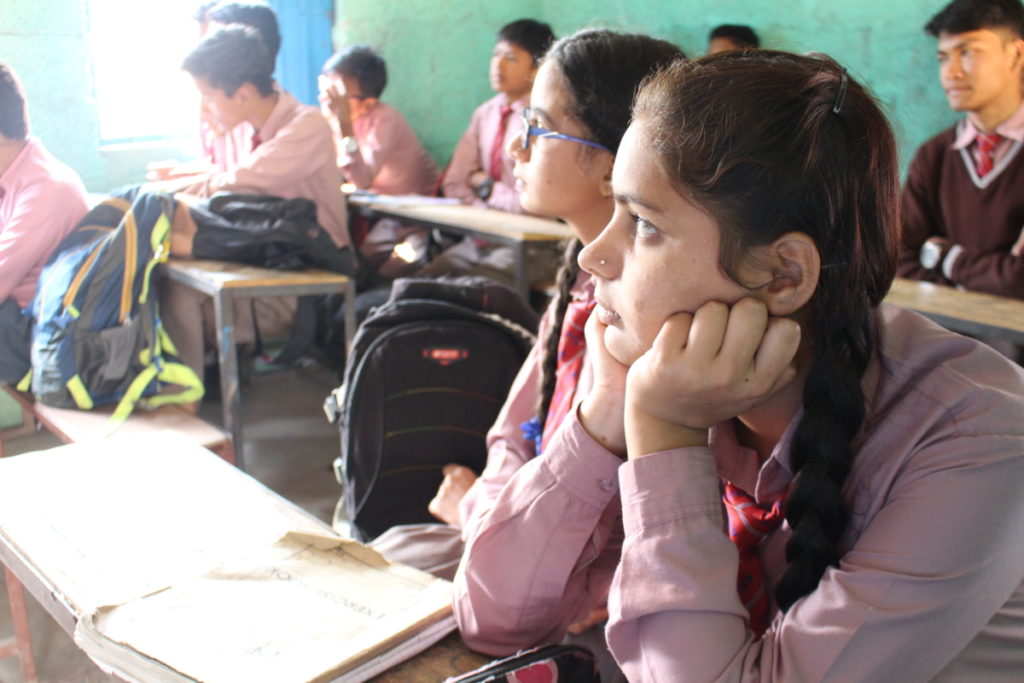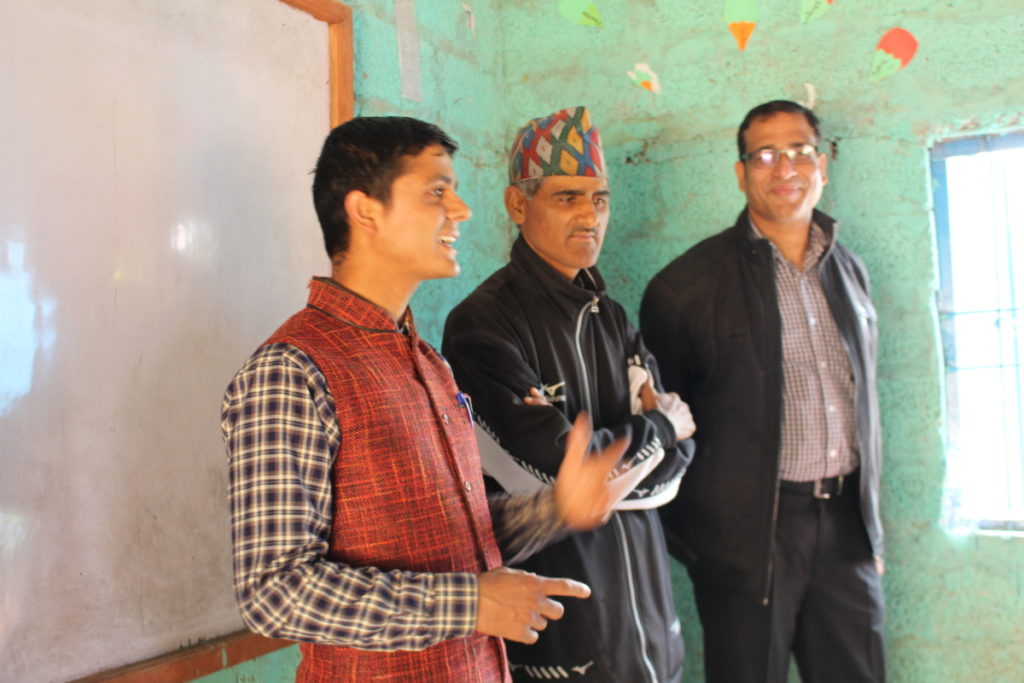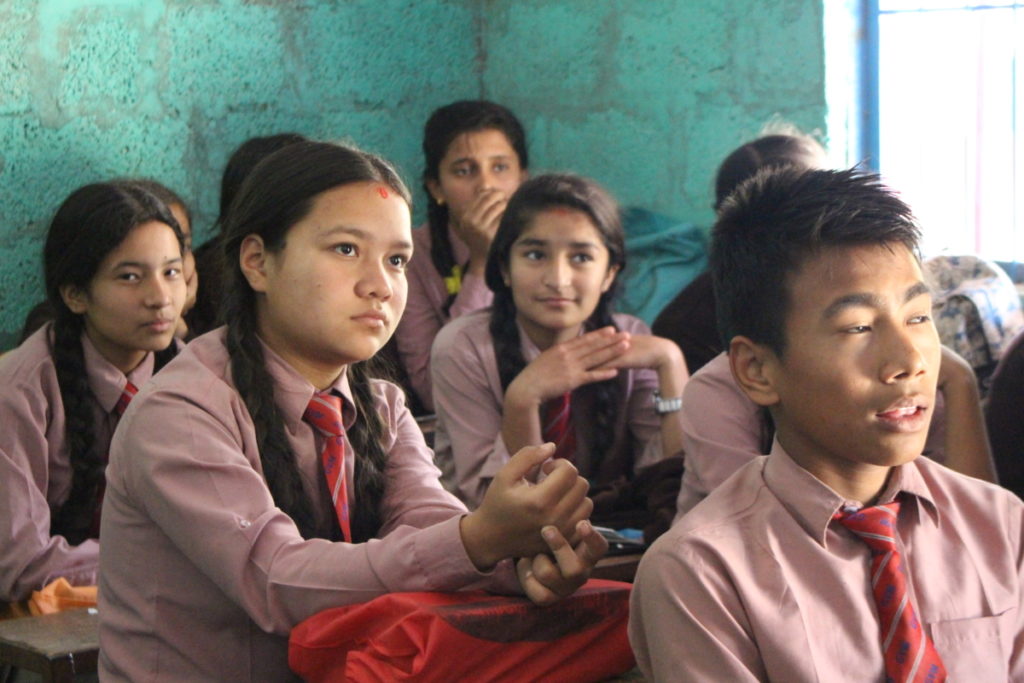“Let’s Talk About Menstruation”
31 May 2017
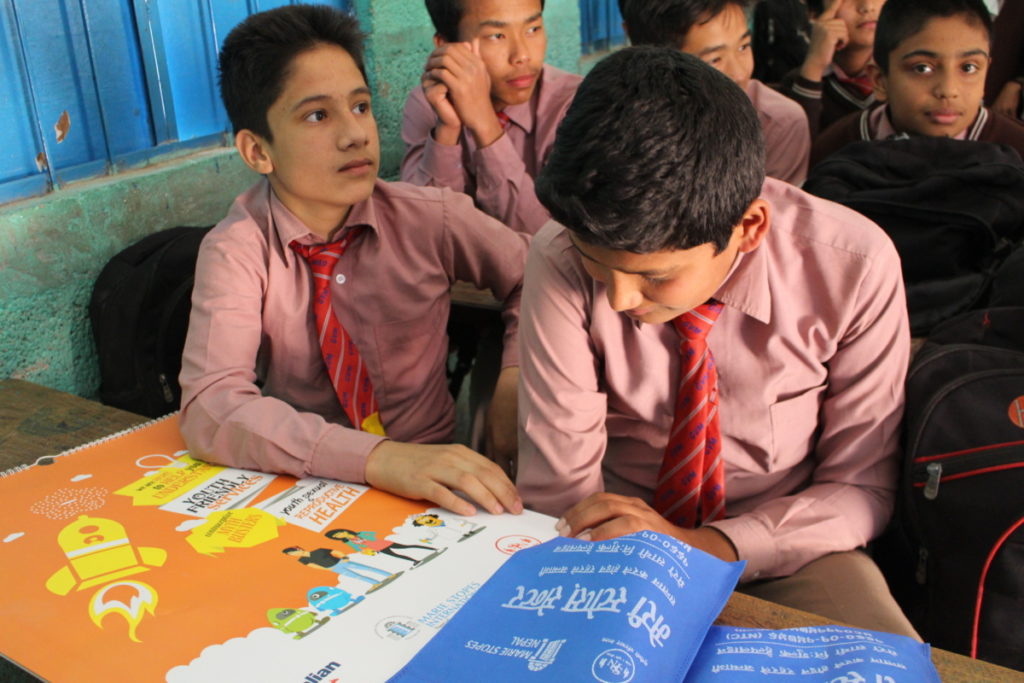
Rockets & Space team visited one of the Marie Stopes Centres in Nuwakot. It just took us few minutes of conversation with one of the schools closer to our centre. The school management team was welcoming. Without hesitation we talked about adolescent’s right to access information on Sexual and Reproductive Health Rights. In a minute the management team of the school confirmed the SRHR session for grade 8 and 9. The team requested us to visit them next day and focus session on menstruation and menstrual health.
Next day we went to the school and meet the enthusiastic students staring at us with loads of questions they had regarding SRHR. For few minutes the students felt clumsy to initiate the conversation surrounding their body and bodily changes in adolescent age. As we assure them with comfort and presented with some queries that are commonly asked by adolescent in our Meri Saathi Free Helpline they could not control their laughs. Then, they bombarded us with various questions. Boys were concerned about masturbation and wet dreams whereas girls had requested related to their menstrual cycle.
Girls were shy to speak and put their question forward in the mass. The girl captain in the class pointed towards of facilitator and requested to whisper the question rather being loud in front of boys. She whispered, “How long should we use sanitary pads during menstruation?” To address the question, the facilitators asked the whole class whether they were are aware of the term menstruation. Most of the boys had heard about this in their families as there is a tradition of considering menstruates as “untouchables” by their family members. We further asked the boys whether they ever raised questions on why that is happening. Not boys, however girls answered girls being considered as impure during their menstrual cycle. Then, the facilitator explained the biological process of menstruation and addressed the myths related to impure blood and impurity during menstruation.
On asking about menstrual products, girls have been using home-made pads as well as commercial sanitary pads. Boys mentioned that they had never bought any sanitary pads to their female members. Boys do not have any idea how do the pads look like and where girls would be using in their periods.
One of the boys said, “I have seen the advertisement in TV about sanitary pads. I have been always curious to know where it is used and why. On asking to my sisters they always change the topic. And I am afraid to ask to my mother.”
Clarifying his curiosity, the facilitator demonstrated sanitary pads and explained how it works. Coming back to how long it should be used, we again fired questions to girls on how they have been using it. The girls replied that they used it for whole day when they are in school. They shared that they do not have proper toilets which they can use and change pads.
One of the girls shared, “I do not feel moving during my periods as I have cramps every time. I make sure that I stay at my bench and don’t move. I am afraid if I move, the blood will leak from pads and my skirt will get stain.”
The facilitator then explained that it’s recommended to change even disposable pads every 6 hours to avoid bacterial growth which lead to bad odour and infections. Most cloth pads come with a leak-proof layer which prevent stains on clothes. Though others don’t have this layer, they can be used for 4-5 hours depending on flow.
The facilitator also stressed on key points on why boys should talk about menstruation. It was mentioned that talking about menstruation and learning more about the process help to fight with stigma against menstruation. Also, boys can help their female members or friends to access accurate information and support them during their menstruation. The simple gesture like buying sanitary pads, cooking during their menstruation, serving hot water to overcome pain and spreading right message could help a lot.
